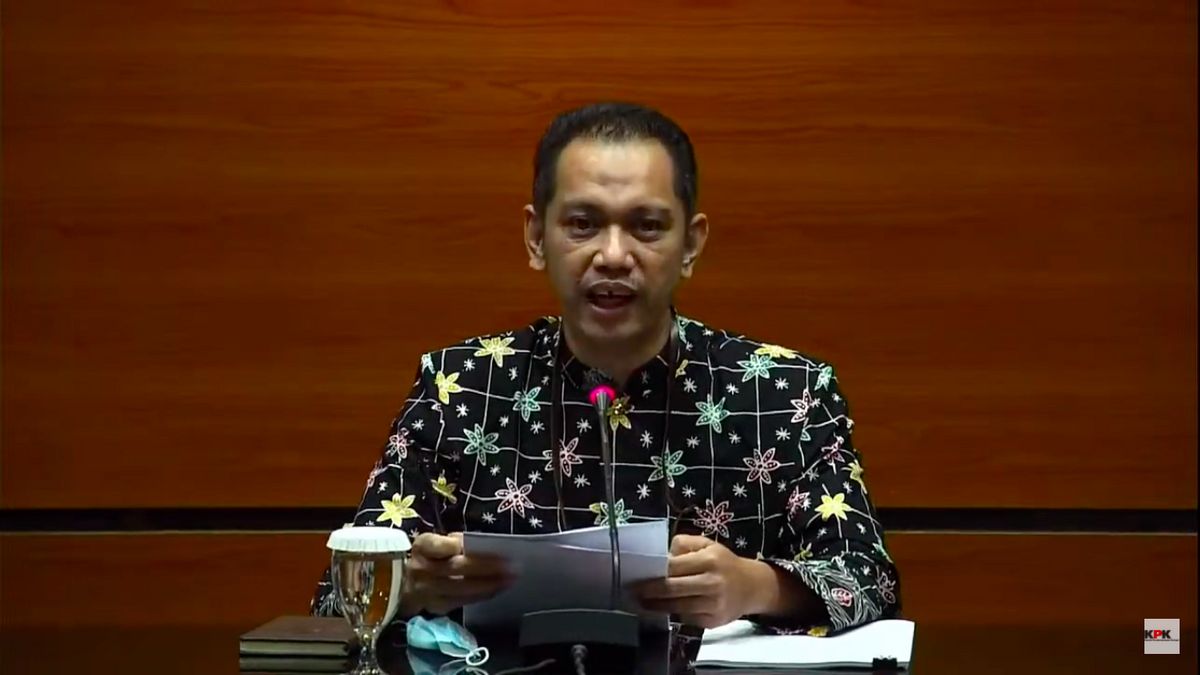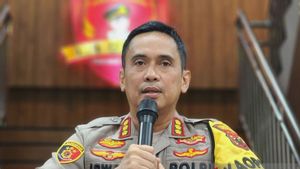JAKARTA - Deputy Chairman of the Corruption Eradication Commission (KPK) Nurul Ghufron again accused the Indonesian Ombudsman of committing maladministration some time ago while clarifying himself.
This allegation was conveyed at a press conference to convey the KPK's stance on the findings of maladministration and corrective steps related to the implementation of the National Insight Test Assessment (TWK) by the Indonesian Ombudsman.
Initially, Ghufron denied the findings of the Indonesian Ombudsman which stated that abuse of authority had been found in the harmonization meeting where the minutes of the meeting were actually attended by parties who were not present.
"The one who is blamed for this, in Permenkumham Number 23 of 2018 in the harmonization meeting is the Director General, at the KPK we delegate it to the Legal Bureau. The harmonization series has been five times. Several times were attended by the Bureau and the Director General but the final one was we were present. Chairman (KPK Chairman Firli Bahuri ) and I'm present, what's wrong?" said Ghufron in a press conference broadcast on the KPK RI YouTube, Thursday, August 5.
He then said that the Indonesian Ombudsman did not understand Article 35 of Law Number 5 of 2014 concerning Government Administration. According to Ghufron, referring to the legislation, his presence is actually not a problem legally and is not a mistake.
So that the assumption of maladministration stated by the Ombudsman of the Republic of Indonesia is unfounded. Ghufron even accused the agency of having committed administrative violations.
"What are the facts? When I was asked for clarification in accordance with the RI Ombudsman regulation 48 of 2020 article 15 paragraph 2 it was stated that the clarification was carried out by the assistant in charge of the inspection function. That is, the assistant in charge of the inspection function," said Ghufron.
However, during the examination the Ombudsman did not present the assistant in question, but one of the commissioners, namely, Robert Na Endi Jaweng.
"Even though the regulations themselves say that assistantship itself says assistantship, but the commissioner who attended was the same as me when he was present during the harmonization at the Kumham," he explained.
"So what is said to be maladministration because the leadership is present, it turns out that the Ombudsman did the same thing, so if it is consistent this examination has also been carried out in a maladministration," added Ghufron.
As previously reported, the Corruption Eradication Commission (KPK) expressed objections and would not carry out the corrective steps submitted by the Indonesian Ombudsman after the TWK implementation process was declared maladministrative and there were irregularities.
In its objection, the anti-corruption commission considered the Ombudsman unfair in providing its recommendations.
The Corruption Eradication Commission also considers that the Ombudsman does not respect their authority in carrying out the test as a condition for transferring their employee status to State Civil Apparatus (ASN).
Not only that, the KPK also accused the Indonesian Ombdusman of crossing the line because he stated that the TWK did not comply with the applicable regulations. The Ombudsman is considered to feel more powerful than the rule of law and legislation in Indonesia.
The English, Chinese, Japanese, Arabic, and French versions are automatically generated by the AI. So there may still be inaccuracies in translating, please always see Indonesian as our main language. (system supported by DigitalSiber.id)









